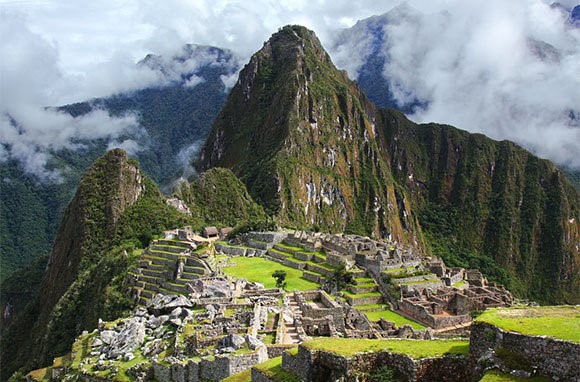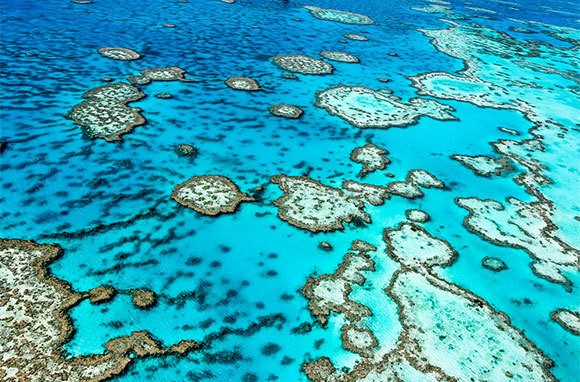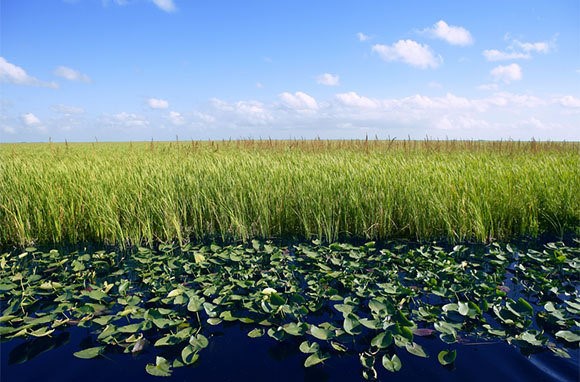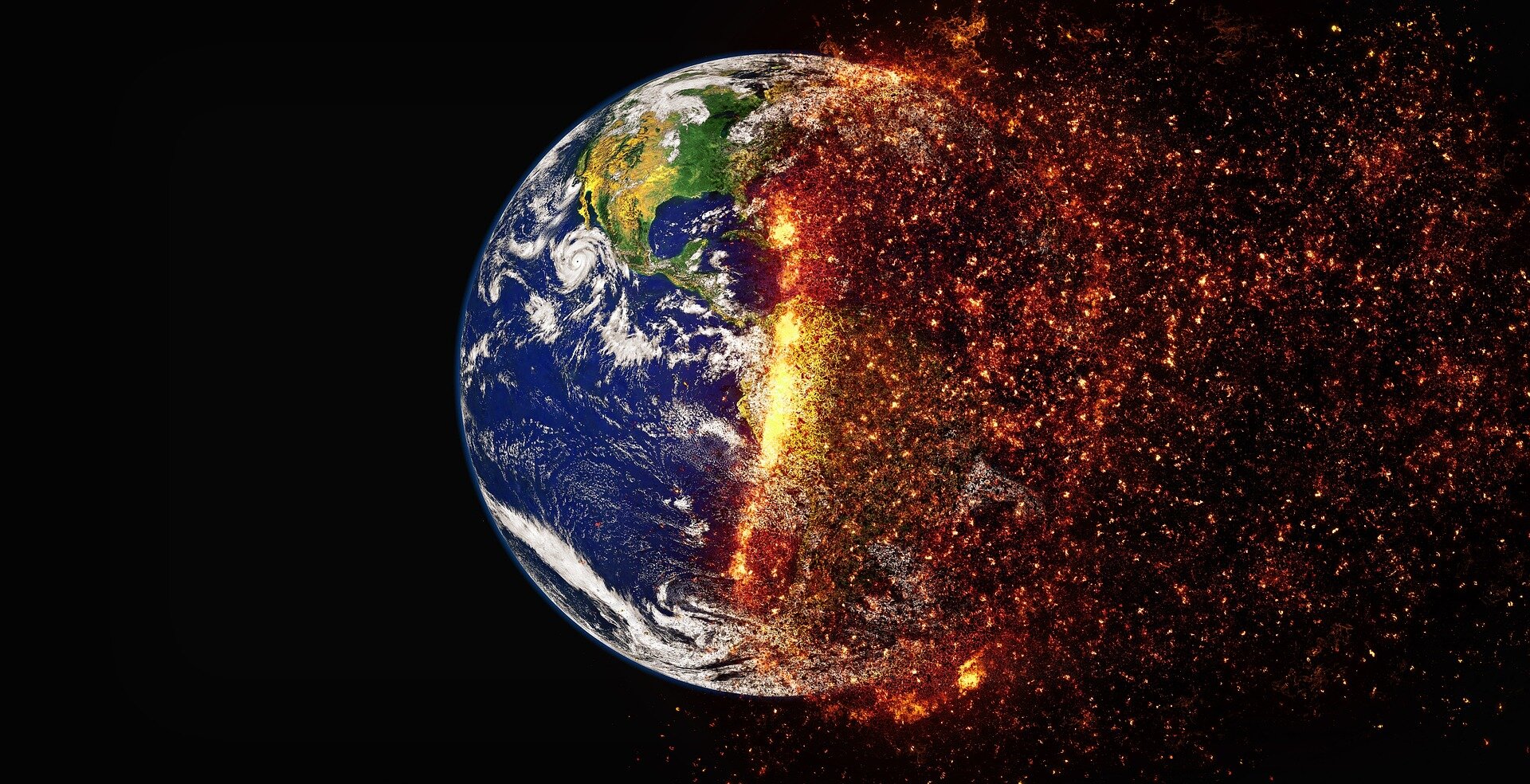By Iylia Marsya Iskandar and Ariani Mohd Nor
The Oxford Dictionary defined œloss as the process of losing something or someone.
To put it in a simpler manner, it is as if you are losing your grip on something and letting it slip right between your fingers.
Ironically, daily conversations on losses are limited to only conversations about deaths. It is the death of a loved one, the death of a family member or even the death of a pet cat that have been with you for so many years, they became family.
However, what people often let slip between their fingers are the death and the loss of the beauty of the environment, nature and our livelihood.
People do not talk about the loss of the greens and the homes of our beloved animals. They dont talk about how Greenland is really turning green. And they mostly dont talk about the 3 billion animals that were displaced or killed during Australias devastating bushfire this year as recorded by the World Wide Fund for Nature (WWF).
In our discussions about the losses of animals, surely the animals that pop into our minds are Mammoths, the Dodo and Tasmanian Tigers. All of which we hold dearly in our hearts, photographs and animating them in cartoons.
However, with the rise of bushfires, logging and natural disasters, scientists reported that Koalas are also expected to be extinct in New South Wales by the year 2050. Not only that, Pygmy Possums that were rumored to be extinct earlier this year in the Australian bushfires have recently been found post-blaze. This is indeed a miracle.
Nevertheless, how much longer are we going to depend on miracles? We especially do not want our children to only know koalas, elephants and kangaroos by photographs. We do not want them to be our loss and letting it slip between our fingers when we have the chance to make a change, therefore, we have to together grip our torches, our animals and our environment and battle this climate crisis “ together.
The face of climate emergency
According to the climate report by the World Meteorological Organisation, 2019 was the second warmest year since 1850. The temperature is generally warmer by 1.1°Celsius.
Amidst the troubling heat, an international group of around 11,000 scientists have endorsed a research that proves that the world is facing a climate emergency.
The research is based on 40 years of data, emphasising that governments all around the world failed and are still failing to address climate change despite several Climate Conferences such as the 1992 Rio Summit, the 1997 Kyoto Protocol, and the 2015 Paris Agreement.
The study criticised other researches that only measure global surface temperatures and stressed that it is actually an inadequate way of capturing the real dangers of an overheating world.
In their study, the authors include a range of data which they believe represents vital signs indicators of climate change over the past 40 years.
These indicators include the growth of human and animal populations, per capita meat production, global tree loss, as well as fossil fuel consumption.
Taken together, the researchers say most of their vital signs indicators are going in the wrong direction and add up to a climate emergency.
œAn emergency means that if we do not act or respond to the impact of climate change by reducing our carbon emissions, reducing our livestock production, reducing our land clearing and fossil fuel consumption, the impacts will likely be more severe than we’ve experienced to date, said lead author Dr. Thomas Newsome, from the University of Sydney.
œThat could mean there are areas on Earth that are not inhabitable by people, he said.
The Causes of Climate Change
To truly understand the gravity of this situation, it is important to dig deep into the root cause itself “ what are amongst the important causes of climate change.
- Natural Causes of Climate Change
Even long before humans were around, the earth has gone through several warm and cool phases. Therefore, it is safe to say that natural occurrence in the world does contribute to climate change at a certain gravity. The phenomena that contribute to climate change include the suns intensity, volcanic eruptions, and changes in naturally occurring greenhouse gas concentrations.
Greenhouse gases can be described as a blanket around the Earth where it traps energy in the atmosphere, causing it to warm up. This blanket affair is also known as the greenhouse effect and it is a natural and necessary process to support life on earth.
However, while greenhouse gases build up, climate changes and results in dangerous effects to the ecosystem. A warmer climate can bring changes that can affect the natural environment, and even our own health and safety.
Records indicated that the climate in the mid-20th century is warming up faster than ever before since the 1850. Furthermore, this rate of warmth cannot be explained by natural causes alone.
According to NASA, œThese natural causes are still in play today, but their influence is too small or they occur too slowly to explain the rapid warming seen in recent decades.
- Anthropogenic Causes of Climate Change
Generally, human activities exudes an enormous amount of greenhouse gases and it is the leading contributor to the rapidly changing climate. According to the Intergovernmental Panel on Climate Change (IPCC), concentrations of greenhouse gases œhave increased to levels unprecedented in at least the last 800,000 years and the atmospheres share of carbon dioxide has risen by 40 percent since preindustrial times.
Firstly, the primary source of human-generated emissions are the burning of fossil fuels such as coal, oil, and gas for our basic necessities; electricity, heat, and transportation. Furthermore, selfish activities such as deforestation decrease the amount of oxygen while releasing an extensive amount of harmful gasses in the air.
According to NASA, logging, clear-cutting, fires, and other forms of forest degradation contribute up to 20 percent of global carbon emissions. Other human activities that generate air pollution include fertilisers use (nitrous oxide emissions), livestock production such as cattle, buffalo, sheep, and goats (methane emitters), and industrial processes that release harmful gases such as factory emissions and road constructions.
The resulting buildup of greenhouse gases is causing alarmingly fast warming worldwide. How many more penguins and polar bears and koalas have to lose their homes until we realise that we need to start acting now?
The Effects of Climate Change
According to the World Economic Forums 2016 Global Risks Report, if the worldwide community fails to mitigate climate change, it will be œthe most impactful risk we will face in the coming decade as even a seemingly slight average temperature rise is enough to cause a dramatic transformation of our planet.
As climate change transforms global ecosystems, it affects everything from the places we live to the water we drink to the air we breathe. Climate change will result in weather changes all around the world including in tourist destinations.
According to the World Tourism Organisation, climate change will result in a shift in demand in one tourism spot that could majorly disrupt the economic sustainability of some destinations.
- Extreme weather
As the atmosphere warms, it collects, retains, and drops more water, changing weather patterns and making wet areas wetter and dry areas drier. Higher temperatures will result in the frequency of many types of disasters, including storms, floods, heat waves, droughts, landslides and fuel bushfires.

One of the world heritages that will be deeply affected by extreme weather is in Peru, the œMachu Picchu which is one of the worlds most famous tourist attractions. However, uncontrolled development, erosion and the ongoing risk of landslides due to weather changes that could wipe erase the site, keeping Machu Picchu’s future at risk. UNESCO has advised authorities to take œrigorous emergency measures to counter the growing disorganisation.
- Warmer and more acidic oceans
According to the Natural Resources Defence Council, oceans absorb between one-quarter and one-third of our fossil fuel emissions and are now 30 percent more acidic than they were in preindustrial times. Rising ocean temperatures are also disrupting underwater species and contributing to coral bleaching events capable of killing an entire reef ecosystems that support more than 25 percent of all marine life.

The Great Barrier Reef is one of the most popular world heritages that attract tourists from all around the world. However, UNESCO reported that œas ocean temperatures rise and waters become more acidic, the Great Barrier Reef is expected to be subjected to increasingly frequent bleaching events, cases in which corals turn white and may die.
- Dirty air
The Natural Resources Defence Council reported that when our temperatures rise, it gets dirtier with smog and soot levels going up. Furthermore there are also more allergenic air pollutants such as circulating mould and other irritants. This will be absorbed into the atmosphere and result in polluted storms and rain.

The Everglades National Park is among one of the world heritages in danger as a result of climate change. According to UNESCO, œYears of draining, dike building and construction have reduced water inflows by up to 60 percent and furthermore, water pollution from agricultural runoff and contaminated stormwater have caused a decline in marine species. This has destroyed more than half of the original Everglades.
In order to retain our lives and livelihood, everyone needs to wake up, join hand-in hand and realise that climate change is a reality. Our dreams of bringing children to the zoo to see koala, kangaroos or even exploring the beauty of the lost world of Machu Picchu and snorkelling alongside the turtles and dolphins in the Great Barrier Reef are at stake.
Not only that, the emergence of the COVID-19 pandemic poses a catastrophe effects on the world economy. What is to happen if world heritage loses its charm and no longer be the centre of the worlds attention?
Not only will our dreams be buried, the worlds economy will collapse with us.
Thus, the whole population of the world has to grip tight the environment and nature that we appreciate and love to halt our climate crisis.
Lets not make our world, our loss.***
(This article is written as part of the special reports assignment for Feature Writing class)
